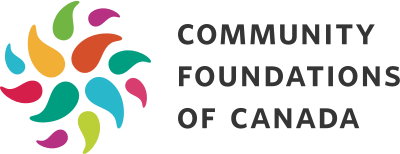This is part of our Emergency Community Support Fund series, showcasing how the $350 million federal funding program is supporting vulnerable populations disproportionately impacted by COVID-19.
Long before COVID-19, food insecurity was a large issue in Canada, impacting almost 4.5 million Canadians. As the pandemic swept across the country, that number rose by 39%, affecting approximately one in seven Canadians.
To ensure the country’s most vulnerable populations don’t go hungry, charities and non-profits have been working non-stop. To bolster their work, Community Foundations of Canada granted almost 5,000 projects funding from the Emergency Community Support Fund (ECSF). More than 1,800 of these projects are directly addressing the issue of food security.
Covering the Essentials
One such organization is the Municipality of Igloolik in the Qikiqtaaluk Region of Nunavut. Before COVID-19, almost 70% of households in the territory were food insecure. Stephen Frampton, acting community economic development officer, explains that in the previous generation, hunting was the main source of food security. “All of a sudden, money and jobs became the new sort of hunting. That impacts food security because you have a new way of life that you have to adjust to.”
And then, COVID-19 struck. “The idea that the economy can shut down — that’s wild. At least before, you could just try harder at hunting. COVID-19 affects us because a lot of people rely on jobs and money.”
The Municipality of Igloolik split the ECSF funding into three categories: food vouchers for use in grocery stores, hunting vouchers, covering fuel and snacks, and baby vouchers. “Pampers and formula are just so expensive here, and it can be really restrictive on your money for food, so that relieves some of the pressure,” Frampton says.
Helping Parents Put Food on the Table
Another ECSF-funded organization, Backpack Buddies, is also tackling child hunger by providing weekend meals to vulnerable school children across British Columbia. When COVID-19 hit, schools shut, and with it went the Monday-to-Friday food stability. Demand for BackPack Buddies skyrocketed, with requests coming from a new demographic: those losing their jobs, and those unable to work due to pre-existing medical conditions.
Backpack Buddies used ECSF to scale their operations. “Pre-COVID, we were supporting 1300 kids a week,” says Emily-anne King, co-founder and vice president. “Each [kid] was receiving a backpack every week with six meals. Post-COVID, we support almost 3000 kids a week. We grew from about 14 school districts to 24, all across the province. We ramped up what was in our bags, so now each child is getting nine meals every week.”
King shares the story of a mother of five supported by the program. “[She told us that we] provide consistency and reliability. [She] knows that her kids will have what they need, and it allows her and her husband to not have to forgo feeding themselves.”
A Growing Gardening Movement
In Parry Sound, Ontario, the Georgian Bay Biosphere Reserve (GBBR) is also putting food directly into the hands of families, using grow-it-yourself garden containers. When COVID-19 first hit, food banks were under immense pressure. GBBR quickly distributed vegetable planters amongst their frontline agency partners, giving households the opportunity to harvest their own healthy foods.
“Not only does it have obvious health benefits, but there are the mental health benefits of gardening,” says Rebecca Pollock, executive director. “We also knew that a lot of seniors were extremely vulnerable, and that growing food would give them great joy.”
Within just three months of using the ECSF, GBBR distributed planters to 420 people, focusing on seniors and Indigenous families. “We got [thank-you] cards that said [things like] ‘your garden planter has brought joy to my mother’s life,’” Pollock says. “‘She has been depressed and isolated, but your garden arrived, and she’s just so much better from the program.’”
Building Back Better
When it comes to tackling food insecurity, communities know what they need. When deciding how to use the ECSF funding for Backpack Buddies, King says, “There’s a feedback loop to ensure that what we’re giving the kids is what they enjoy [to eat]. It’s really specific [and we] are refining that at every opportunity we get.”
GBBR has direct partnerships with local food banks, women’s shelters, churches and more. “Our job was to communicate to [frontline agencies] that there was an opportunity for support, that we literally just needed them to give us numbers, and we would arrange deliveries,” Pollock says.
Frampton points out that funding doesn’t usually come to municipalities directly, and Igloolik is no exception. However, with the ECSF, “They give us [funding] that we can use in a very free way. It respects our ability to make our own decisions over what our communities need.”
While all three organizations have made significant impact in their community, food insecurity won’t disappear after COVID-19. For the Municipality of Igloolik, one way forward is to focus on local entrepreneurship, so that money stays in the community. “That would be a long-term vision for autonomy and food security,” Frampton says.
For Pollock, gardening can play a big role in building back better: “we just want to build on that movement of sustainability and well-being in our communities.”
Looking ahead, King says funding could go to grassroots organizations, “rather than attempting to reinvent the wheel by creating other food services programs. If there was support from the government on a long-term basis, the impact we could have collectively would be incredible.”




